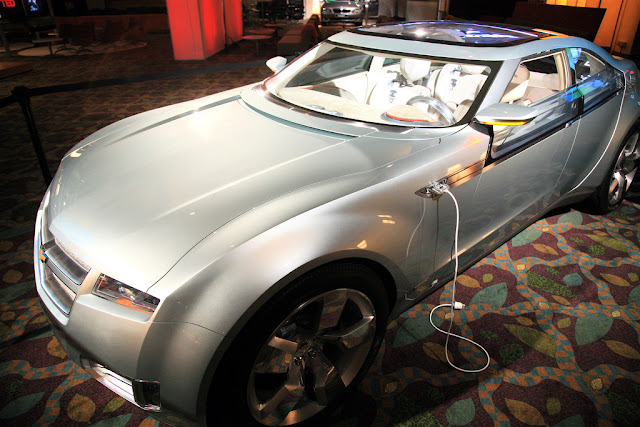Hybrid cars are silent cars which run on both gasoline engines and rechargeable batteries. The technology is still a relatively new thing so you may want to check as many reference as possible when deciding to buy one. Hybrid cars are incredibly silent, however they work just like fuel powered cars do. When the cars are stuck in traffic, their engine will shut down and they will run on batteries. The transition between fuel and battery is smooth, making the cars comfortable to drive. In other words, conventional cars use an internal combustion engine and functions on diesel or gasoline, whereas hybrid cars use both the standard engine and a battery powered electric motor.
Unlike conventional all-electric cars, hybrid cars use regenerative charging thus they do not need plug-ins because they automatically recharge themselves while they are in drive. When you apply the brakes, the engine will transfer a portion of its power back into the car battery—the braking system of the cars, just like their battery, is regenerative which gives the brake pads a longer lifespan. That way, a charging station to plug-in your car is not required. Just drive, and the car will be automatically recharged.
One disadvantage of hybrid cars is that their powertrain is far more complex than that of conventional cars. This means that if the car breaks down it will cost more to repair and parts may be more expensive. As hybrids technology become more common in the future, this is something that you can expect to change. And while it is true that hybrid cars have expensive parts, they also have warranties that provide free replacement of the most expensive parts for many years. You may need to check it with the dealer or manufacturer.
Hybrid cars use batteries that present low fuel emission rates. As you may have known, this is favorable in the world currently threatened by global warming. It reduces smog release by up to 90% and less greenhouse gases than conventional cars. To make it clear, hybrid technology is when electricity is created by fuel cells that utilize hydrogen and oxygen. The resulting exhaust is clean water.
Speaking of endurance, according to The U.S. Department of Energy, hybrid cars can run as much as a 70 mile drive on just one gallon worth of gasoline. This is certainly more cost-efficient than that of conventional cars. They also come with a battery pack of 38 modules so it is not necessary to spend a lot of money replacing a whole battery. Hybrid car owners can replace a single unit that is not working.
 However, some consumers do worry that hybrid cars may not last as long as conventional cars, but consider the saving of 15–20% on fuel costs compared to conventional cars. With a lot of driving especially on city traffics, that saving will add up quickly. Hybrid cars have been sold in Japan since 1997, although they are rarely, if not, available in U.S. market for a very long time. For your information, it still has popularity and great resale value years later.
However, some consumers do worry that hybrid cars may not last as long as conventional cars, but consider the saving of 15–20% on fuel costs compared to conventional cars. With a lot of driving especially on city traffics, that saving will add up quickly. Hybrid cars have been sold in Japan since 1997, although they are rarely, if not, available in U.S. market for a very long time. For your information, it still has popularity and great resale value years later.
Now that you know some of the important facts about hybrid cars and their technology compared to common cars—hybrid cars versus conventional cars—you may want to consider buying one when they become available in the market.
It's important that your inside character is bigger than your outside persona. A sports car with a lawnmower engine won't work. ~ Anonymous
Via hybrid-car, hybridfriends; Photo: quinet / Foter / CC BY-NC-SA; jurvetson / Foter / CC BY-NC-SA
Bagikan
Hybrid Cars Versus Conventional Cars
4/
5
Oleh
Unknown





